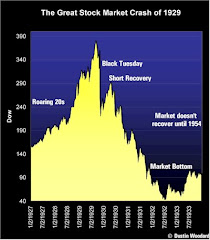The UK sees their system of government as being in big trouble.
Today they made changes that attempt to turn the tide for the UK. For starts the UK slashes 490,000 jobs amid deep budget cuts
The British government announced deep budget cuts Wednesday, as it tries to fight what its finance minister called "the largest structural budget deficit in Europe."
The changes will include "ruthless privatization" and will leave "no stone unturned in our search for waste," Chancellor George Osborne told lawmakers in the House of Commons.
The government will slash 490,000 jobs from the public payroll over four years, he said.
But the cuts will also be guided by the principle of "fairness," he said, adding that "those with the broadest shoulders will bear the greatest burden."
He specifically named banks when saying "those with the most should pay the most," amid widespread British anger at bankers.
But Osborne's predecessor warned against trying to cut the deficit too quickly.
"If the private sector doesn't come in and take [government spending's] place, you run the risk of derailing the economy," said Alistair Darling, who was chancellor until the Labour Party lost elections in May.
The long-awaited cuts follow a "comprehensive spending review" by the new British government, which came to power in May.
Paying interest on government debt currently costs 44 billion pounds ($69 billion) a year, the Treasury said in outlining the spending review -- more than defense, policing, housing or transportation.
The government forecasts public spending peaking this year, then falling to 2003-04 levels by 2015-16. That will still not quite balance the budget, it predicts, but will come close to doing so.
It announced deep cuts to the defense budget on Tuesday, with the armed forces losing 10 percent of uniformed personnel in the next five years.
As we have seen around the world the biggest costs associated with running governments is the cost of the compensation packages for the Protected Classes.
The first place to start in cutting the cost of government is the gold-plated benefit packages for the public sector. In North America and in Europe the biggest challenge has been that the politicians have given themselves the best pensions of all.
Cut MP Pensions
Politicians know that any changes they put onto the peon class will affect their pensions. Therefore no pension changes have been made in most jurisdictions because it will affect the retirement packages of the politicos. So it is promising to see that first place the UK government has started is at the top. MPs’ final salary pension scheme to end
During the Comprehensive Spending Review, Chancellor George Osborne told the Commons that the current final salary scheme for members of parliament will have to end.
Osborne said: “It is clear that the current final salary pension terms for MPs are not sustainable and we anticipate that the current scheme will have to end."
Tom McPhail, head of pensions research at Hargreaves Lansdown, said: “I think what he was doing there was demonstrating that the MPs will be the first wave of public servants to face reforms of their pensions.
“He was seeking to diffuse any criticism Sutton’s review and making it clear he is putting MPs in the front line of any suffering that is going to be experience by publically paid employees in respect to their pension rights.”
The Telegraph reports that:
It was “not sustainable” for the generous final salary scheme, which means MPs can retire on more than £30,000-a-year after only 20 years’ service, to be continued.
At present, MPs are able to contribute as much as 12 per cent of their salary into the fund.
The Treasury is paying out more than £8 million a year for their pensions – the equivalent of around 18 per cent of their salaries. MPs qualify for the pension even if they are voted out of office after only a few years.
In a report this summer, the Senior Salaries Review Body recommended that MPs’ pensions be switched from final salary to an amount based on their average career earnings.
It also suggested that the pension age be increased from 65 to 68, with a contribution rate of 5.5 per cent of pay.
Mr Osborne said: “It is clear that the current final salary pension terms for MPs are not sustainable and we anticipate that the current scheme will have to end.”Higher Pension Age
We have seen the protests that have rocked France over moving the pension age from 60 to 62. The UK has taken the dramatic move of increasing the age of retirement faster than previously planned.
Bill Tufts
Fair Pensions For All




No comments:
Post a Comment